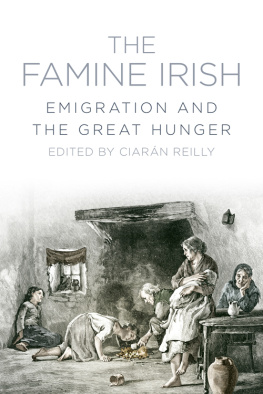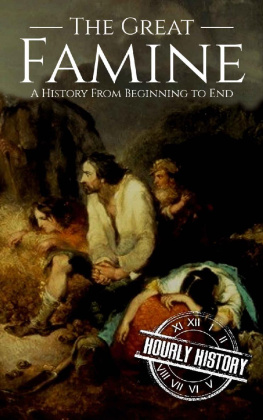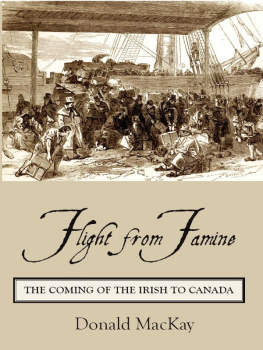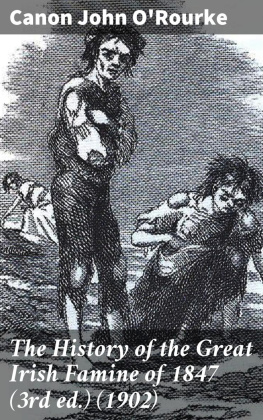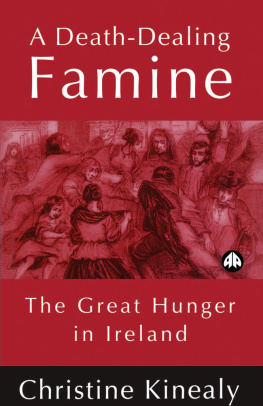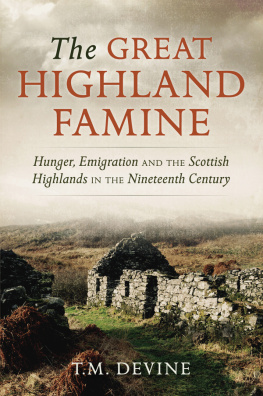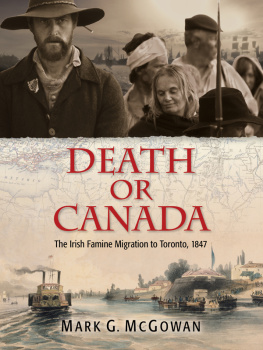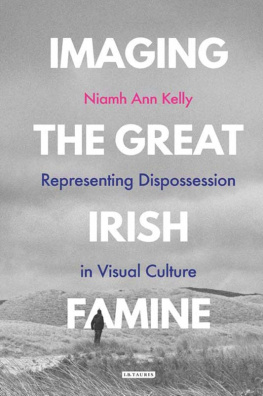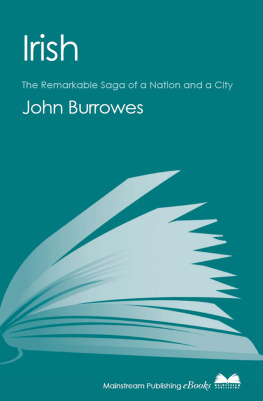

This collection of essays emanates from the Third Annual International Famine Conference, which was held at the Irish National Famine Museum at Strokestown Park House, County Roscommon in July 2013. Fittingly, to mark the year-long celebration, The Gathering, the theme of the conference examined The Famine Irish and their experience of emigration during the 1840s and after. Bringing researchers together with a network of international experts, the conference approached the theme from the broadest possible historical perspective. Over the course of two days, the conference heard thoughtful and wide-ranging analysis of emigration and the diaspora during and after the Great Irish Famine. The quality of the papers delivered highlighted that the proceedings added significantly to the growing corpus of Famine and diaspora studies. The essays included in this volume demonstrate that where once distance may have hindered the study of Irish Famine emigrants, a new generation of scholars are making use of the wide availability of sources online and elsewhere. Indeed, the use of sources is particularly noteworthy, opening up as it does the individual experience of Irish Famine emigrants. Using these myriad of new sources, the essays challenge long-held assumptions about the Famine Irish and provide a remarkable insight into the personal and family circumstances of some of those who were scattered across the globe. Moreover, they also lay the foundation for similar studies of the Irish migr in locations not covered in the present volume.
A number of people are owed thanks for facilitating the conference in 2013 and for ensuring the completion of this collection of essays. Firstly, my sincere thanks to the contributors for their patience, expertise and diligence in the preparation of their essays. Likewise, thanks is owed to Professor Marian Lyons and Professor Terence Dooley of the Department of History, Maynooth University; Tim OConnor, chairman of The Gathering Ireland 2013; Nollaig Feeney, Roscommon Heritage Officer; Michael Blanch, Committee for the Commemoration of the Irish Famine Victims and Pat McCarrick, Bothir. At Strokestown, the efforts of Jim Callery, Patrick Kenny, Caroilin Callery and Declan Jones have contributed immeasurably to the various conferences that have been held there annually since 2011. Likewise, John ODriscoll, curator and general manager at Strokestown Park House, deserves special mention and thanks for his assistance in organising the Annual Famine Conference and other events. I am very grateful to Ronan Colgan, Beth Amphlett and the staff of The History Press Ireland for their dedication and willingness to publish this volume of essays. Lastly, the continued support of my family is greatly appreciated and in particular a special mention to Tara, Donnacha and Odhrn.
In his opening remarks to the conference in July 2013, and which follow, Tim OConnor, chairman of The Gathering, complimented the speakers for their efforts, reminding them that their scholarship was a means of connecting with the thousands who left Ireland in the 1840s and after. It is in that spirit, then, that this book is offered.
Ciarn Reilly
Contents
FIDELMA BYRNE is an Irish Research Council Postgraduate Scholar. Her research interests include nineteenth- and twentieth-century social history, landed estates and assisted emigration. She is currently completing her doctoral thesis entitled Estate management practices on the Wentworth-Fitzwilliam estates in Yorkshire and Ireland: a comparative study, 1815-65 at Maynooth University.
REGINA DONLON graduated with a PhD from Maynooth University in 2014. She is currently working as an Irish Research Council Postdoctoral Research Fellow at the National University of Ireland, Galway where her work examines assisted emigration from the west of Ireland to the American Midwest during the period from 1880 to 1930. Her research interests include Irish and European diasporas, American history in the Reconstruction era and transnationalism.
MARY LEE DUNN MA , whose Roscommon ancestors came from Kilglass parish and Elphin, is an independent scholar, former journalist, and a founder of the Ballykilcline Society. She is author of Ballykilcline Rising: From Famine Ireland to Immigrant America (2008) and continues her Irish research. She lives in Maine.
JAMES M. FARRELL is a Professor of Rhetoric and Chairperson in the Department of Communication at the University of New Hampshire, where he teaches classes in argumentation, propaganda, rhetorical theory, rhetorical criticism, and American public address. He received his PhD from the University of Wisconsin-Madison in 1988, and has published numerous critical and historical studies of eighteenth- and nineteenth-century American discourse.
LAWRENCE W. KENNEDY is a professor of history at the University of Scranton where he has taught since 1992. He earned his undergraduate and graduate degrees at Boston College and is the author of Planning the City upon a Hill: Boston since 1630 (1992) and co-author of Boston: A Topographical History 3rd edition (2000). He has also written Bricklayer Bill and the Workingmans Boston Marathon with his son Patrick L. Kennedy (anticipated publication 2017) and is working on another book, Patrick A. Collins: Irish Emigrant and American Politician, 1844-1905.
CHRISTINE KINEALY has published extensively on nineteenth-century Irish history, particularly on the Famine era. Her publications include, Charity and the Great Hunger: The Kindness of Strangers (Bloomsbury, 2013) and Repeal and Revolution: 1848 in Ireland (Manchester University Press, 2009). She is founding Director of Irelands Great Hunger institute at Quinnipiac University.
JASON KING is an Irish Research Council Postdoctoral Researcher in the Moore Institute at the National University of Ireland, Galway. He was previously a lecturer at the University of Limerick, Maynooth University, and an Assistant Professor of Canadian Irish Studies at Concordia University. His research specialises in Irish Famine memory and migration in past and present literary representations and performance. He is the curator of the digital Irish Famine Archive: http://faminearchive.nuigalway.ie.
PERRY MCINTYRE is an Adjunct Lecturer at the University of New South Wales and has worked as a genealogist, freelance historian and archivist for over twenty years. She has served on the committees of the History Council of New South Wales, the Society of Australian Genealogists, the Royal Australian Historical Society, the Australian Catholic Historical Society and the Great Irish Famine Commemoration Committee (chair 2012-15). She has published and spoken extensively on immigration and family history in Australia and Ireland. Her PhD on convict family reunion was published in 2010 by IAP as Free Passage: The Reunion of Irish Convicts and their Families in Australia, 17881852 . She is a director of Anchor Books, Australia, formed to publish history, particularly relating to colonial Australia.
GERARD MORAN is Co-ordinator of History at the European School, Lacken, Brussels and has been a lecturer in the Department of History at NUI Galway and Maynooth University, where he established and was the Director of its MA in Irish History programme. His research interests include the Irish diaspora, the Great Famine and landlord and tenant relations in Ireland. He is the author of Sending out Irelands Poor: Assisted Emigration from Ireland in the Nineteenth Century (2004), and joint editor of Galway: History and Society (1996) and Mayo: History and Society (2014).
Next page
